Introduction
Building credit starts by showing lenders you can borrow, repay, and manage accounts consistently.
You don’t need years of history, a high income, or even a traditional credit card to begin. What you do need is a clear plan because credit isn’t built by accident. It’s built by doing the right things in the right order, starting today.
This guide will show you exactly how credit works, how to build it from zero, and how to avoid the traps that slow most people down. Whether you’re brand new to credit or fixing past mistakes, you’ll leave with a strategy you can act on immediately and a score you can grow over time.
Key Takeaways
- You don’t need a credit card, income, or history to start building credit but you do need the right strategy.
- Opening reporting accounts (like secured cards or credit-builder loans) is the fastest way to go from invisible to credible.
- Consistency matters more than speed. On-time payments and low balances drive long-term credit growth.
- Most credit mistakes are avoidable and reversible if you know what to watch out for.
- Tools like Experian Boost, Self, and Chime can help you automate progress and track your score in real time.
- Once you build good credit, you can unlock lower rates, higher approvals, and financial freedom for life.
Disclaimer: This site contains affiliate links. If you make a purchase, we may earn a commission at no extra cost to you.
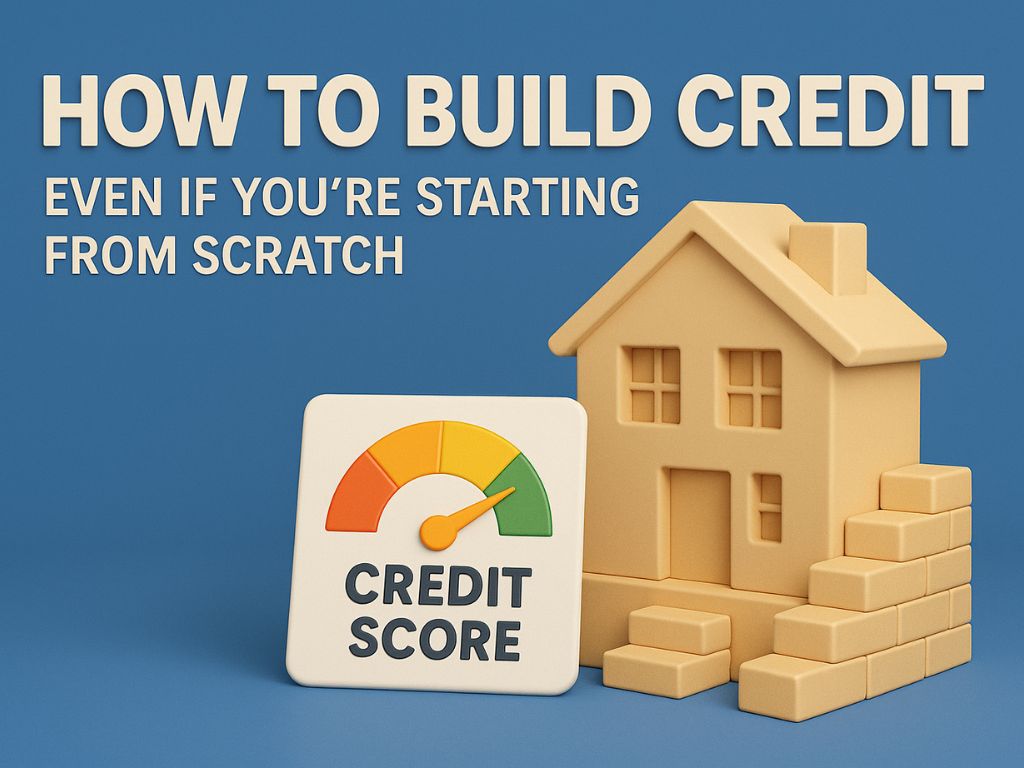
What Does “Building Credit” Really Mean?
Building credit isn’t about chasing points. It’s about proving you’re reliable with money.
When lenders, landlords, or even employers check your credit, they’re not just looking at a number. They’re reviewing a detailed financial history, your ability to handle debt, pay on time, and manage responsibility. That history lives inside your credit report, and it generates your credit score, a number between 300 and 850 that acts like your financial trust rating.
The higher your score, the more doors open. Lower interest rates. Higher approval odds. Better loan terms. More flexibility when you need it most.
But what determines that score?
Five key factors shape your credit: your payment history, how much credit you’re using, how long your accounts have been open, the mix of credit types you have, and how often you apply for new accounts. Each one sends a signal about how you manage financial commitments.
When you’re building credit from scratch, you’re starting with a blank slate. That might seem like a disadvantage but in reality, it’s an opportunity. Because you’re not repairing damage. You’re creating the foundation of your financial reputation from the ground up.
And the steps to do it are surprisingly simple.

How to Build Credit from Scratch (No Credit History)
No credit history doesn’t mean no options.
In fact, starting from scratch can give you an edge, you’re not carrying debt, missed payments, or score damage. You’re starting clean. And with a few strategic moves, you can start generating positive credit signals right away.
The fastest way? Get accounts that report your behavior to the major credit bureaus.
A secured credit card is the easiest entry point. You put down a small deposit (usually $200–$500), and that deposit becomes your credit limit. As you make purchases and pay them off on time, your on-time payments and responsible usage start building your score. After a few months, you may qualify for an unsecured card or get your deposit back while keeping the account open.
Another powerful move: become an authorized user on someone else’s credit card. If a family member or partner has a well-managed account, being added to it can instantly boost your credit profile. Their payment history gets reflected in your report as long as the issuer reports authorized user activity.
You can also look into credit-builder loans. These small installment loans are designed specifically for people with no credit. Instead of getting the money upfront, you make fixed monthly payments toward a locked savings account. Once you’ve paid off the loan, the funds are released to you and your payment history goes straight to the credit bureaus.
Don’t have access to any of those? You can still make progress. Services now exist that report rent, phone, and utility payments to the credit bureaus. If you’re already paying those bills on time, you might as well get credit for it.
Bottom line: You don’t need perfect timing or a long financial resume. You just need one or two reporting accounts and a streak of smart, on-time payments. That’s enough to go from invisible to credible faster than you think.
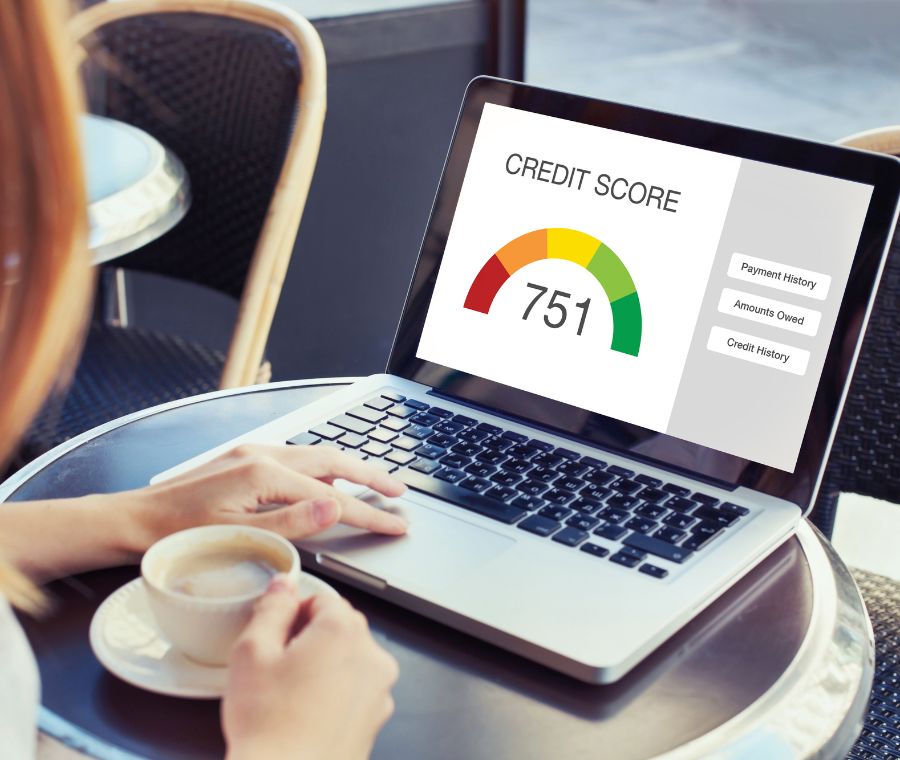
Building Credit with a Low Score (Repair + Rebuild Tactics)
Bad credit isn’t permanent but it is persistent if you keep using the same habits that caused it.
If your score is low because of missed payments, collections, or high debt, the first step isn’t adding more credit. It’s stopping the bleeding. You have to stabilize before you can rebuild. And the good news? The credit system rewards consistency. Not perfection.
Start by making every payment on time from this point forward. Set up autopay or calendar reminders whatever it takes. Payment history makes up 35% of your score, and every on-time payment counts.
Next, look at your balances. If you’re using more than 30% of your credit limit, your score is being dragged down by high utilization. Pay down what you can, and avoid putting new charges on already maxed-out cards. Even a small drop in your balance can trigger a score boost.
Then, pull your credit reports and check for errors. It’s more common than you think. Collections that don’t belong to you, payments marked late when they weren’t, accounts listed twice all of these can sink your score unfairly. If you find an issue, file a dispute immediately. A clean report is a recoverable report.
If collections are part of your credit history, prioritize settling or paying them off, especially if the agency is willing to delete the account after payment (this is called “pay for delete”). While not guaranteed, removing a collection account can have a big impact on your score’s trajectory.
Avoid applying for new credit too aggressively during the rebuild phase. Every hard inquiry dings your score, and too many in a short period signals desperation not stability.
The truth is, rebuilding takes patience. But credit isn’t like reputation in the real world; it can be repaired. And once the damage is behind you, your future score doesn’t care how you started. It only reflects how you’re managing things now.

Habits That Grow Credit Over Time
Credit isn’t built in a day but it is built daily.
Once you’ve opened your first accounts or stabilized your score, what matters most is consistency. The credit system rewards behavior over time. And the longer you demonstrate reliability, the more your score climbs.
The single most powerful habit? Paying every bill on time, every time. Late payments don’t just hurt, they linger. One slip can stay on your report for up to seven years. Automate your payments or set up alerts, but make sure you never miss a due date.
Next: keep your credit utilization low. Just because you can spend up to your credit limit doesn’t mean you should. The ideal usage rate is under 30%, but under 10% is even better. This shows lenders that you’re not relying on credit to stay afloat, you’re managing it with discipline.
Leave old accounts open, even if you don’t use them much. Why? Because the length of your credit history matters. Closing your oldest card shortens your average account age, which can drag your score down. Unless there’s a good reason to shut it down (like high fees), keep it open and active with small purchases.
Another smart move: diversify your credit mix over time. This doesn’t mean opening accounts just to check a box but if you’ve only ever had a credit card, adding a small personal loan or auto loan down the road can help. Lenders want to see that you can manage different types of credit responsibly.
And finally, protect your progress. Check your credit reports regularly for errors, and use credit monitoring tools to catch suspicious activity before it causes damage.
These aren’t flashy strategies, they’re boring, consistent, and effective. The kind of habits that don’t just build credit… they build trust.
📋 Habits That Strengthen Your Credit Over Time

Common Mistakes to Avoid While Building Credit
Credit is fragile when you’re first starting out. One wrong move can erase months of progress and most people don’t realize they’re making these mistakes until it’s too late.
The first mistake? Missing payments. It sounds obvious, but even a single late payment can slash your score and haunt your report for years. Even if it’s just a minimum balance, pay something and pay it on time. Consistency is everything.
Second: maxing out your credit cards. Hitting your limit doesn’t just hurt your utilization ratio, it signals that you may be financially overextended. Even if you pay it off in full later, the damage from high usage can linger. Stay below 30% of your credit limit at all times. Below 10% is even better.
Next, avoid closing your oldest credit accounts. It might seem smart to clean up unused cards, but shutting down your oldest line of credit shortens your average account age and that can quietly drop your score. Unless the card has high fees, keep it open and active.
A subtle but dangerous trap: applying for too many new accounts at once. Every application creates a hard inquiry on your report. Too many in a short span makes lenders nervous. It looks like you’re scrambling for credit, not managing it.
Then there’s co-signing for someone else’s loan or card. Sounds generous but risky. If they miss a payment, your credit takes the hit. Their financial behavior becomes your liability. If you wouldn’t hand them cash with no guarantee, don’t co-sign.
Finally, ignoring your credit reports is a silent killer. Errors, fraud, or outdated accounts can weigh your score down without your knowledge. Check your reports regularly. Protect your progress.
Mistakes are easy to make. But avoiding them? That’s where real credit power begins.
⚠️ Credit-Building Mistakes (And What to Do Instead)
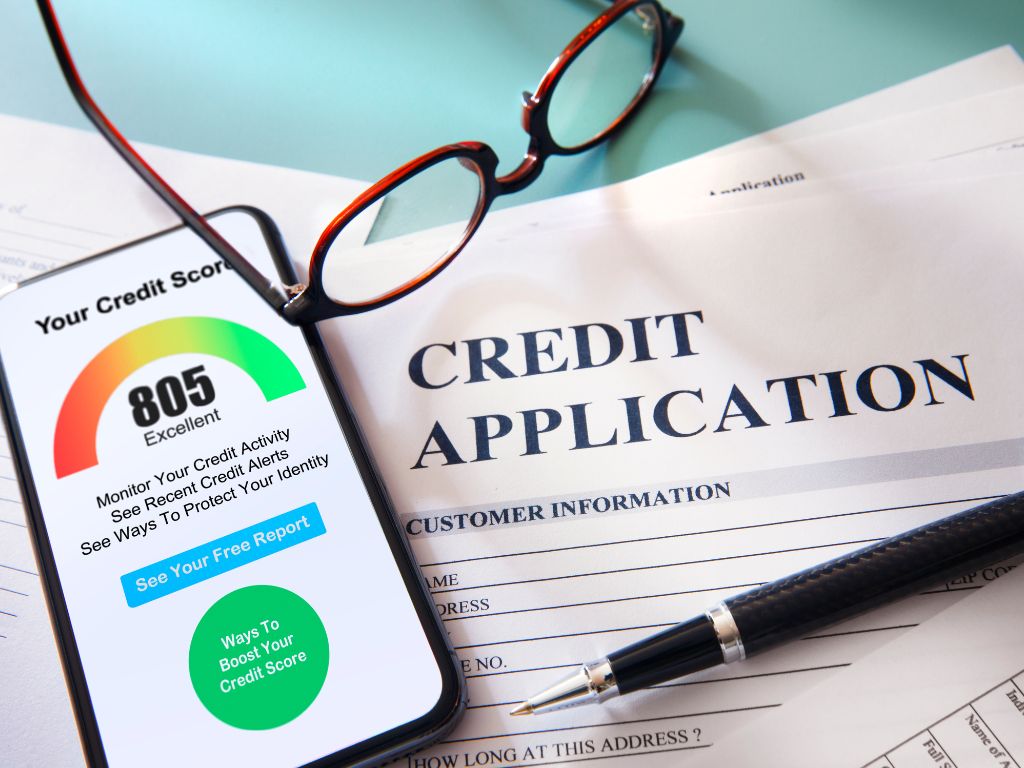
Smart Tools to Help You Build Credit Faster
You don’t have to build credit alone and you shouldn’t.
Today, there are tools designed to help you monitor, improve, and protect your credit with less effort and more precision. Whether you’re just starting out or already making progress, using the right tools can speed things up and help you avoid costly mistakes.
Start with a credit monitoring app. These platforms track your score, alert you to changes, and break down exactly why your score moves up or down. Apps like Credit Karma, Experian, or myFICO give you real-time visibility so you’re never flying blind.
Then look into services that report non-traditional payments. Tools like Experian Boost or RentReporters let you get credit for things you’re already paying like rent, phone bills, or utilities. These don’t always show up in your credit file by default, but with the right setup, they can add a positive payment history that helps lift your score.
Need help building credit safely? Consider a credit-builder app or card. Platforms like Self or Chime Credit Builder are designed for beginners. They help you build history, automate payments, and grow your score often with zero risk of debt or interest charges.
Want to automate even more? Some tools analyze your credit profile and suggest personalized actions to boost your score. These insights go beyond generic advice and tell you exactly what to pay down, when to apply, or how to balance your accounts for maximum impact.
Lastly, use fraud alerts or identity monitoring to protect what you’re building. A single stolen card or fraudulent account can wreck your credit overnight. The best tools notify you instantly if someone tries to use your identity and help you resolve it before the damage spreads.
Credit is personal, but it doesn’t have to be manual. Use tools that give you leverage because every small win compounds over time.
🔧 Popular Tools to Help You Build Credit
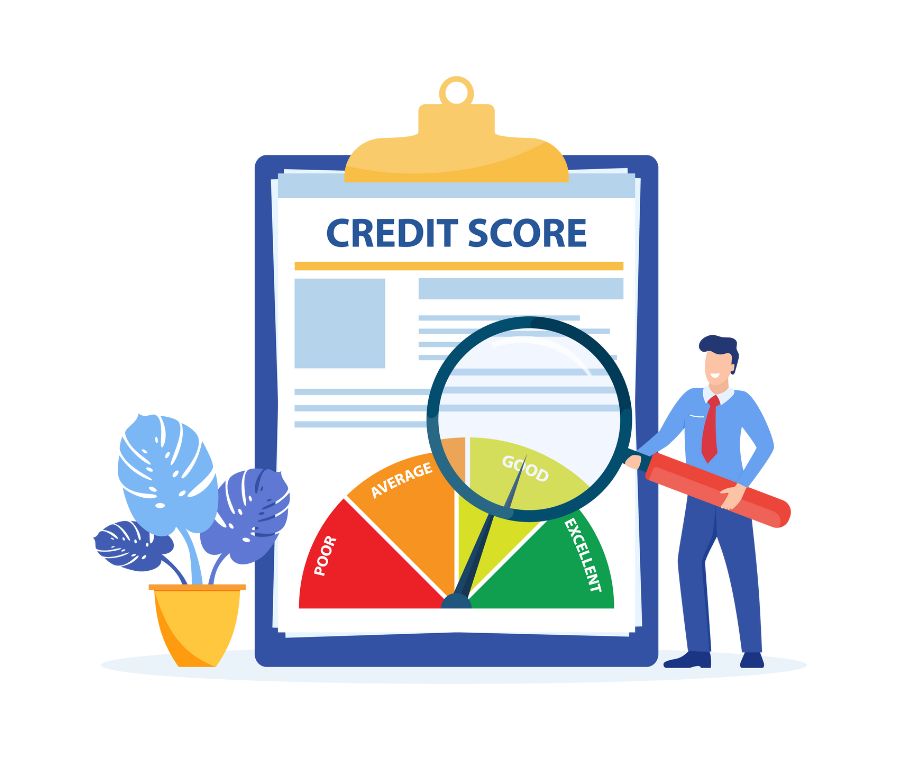
What to Do Once You’ve Built Good Credit
Building good credit isn’t the end goal. It’s the launchpad.
Once your score crosses into the 700+ range, the rules change. Suddenly, lenders are competing for your business. You unlock better rates, higher limits, and more opportunities but only if you use that credit wisely.
Start by reviewing your current accounts. With a strong score, you may qualify for cards or loans with lower interest rates, better rewards, or no annual fees. Don’t jump at the first offer, choose options that align with your goals. Travel rewards? Cashback? Balance transfers? Pick with purpose.
Next, increase your credit limits strategically. A higher limit (combined with the same spending habits) lowers your credit utilization ratio, which can boost your score even further. Just make sure you’re not increasing limits as an excuse to spend more.
Then, leverage your score when it matters most: buying a car, getting a mortgage, refinancing debt, or launching a business. Good credit gives you negotiating power. It saves you money. And it puts you in control of your financial timeline.
But here’s the key: don’t get comfortable.
Keep monitoring your credit reports. Keep payments on autopilot. Keep utilization low. Good credit is easier to maintain than it is to rebuild but it still requires attention. Missed payments, identity theft, or a few bad financial decisions can undo years of progress.
If you’ve reached a strong credit tier, you’ve done what most people never figure out. Now it’s about staying sharp, using your credit intentionally, and letting it open doors without ever becoming a burden.

Conclusion: Start Building Now and Don’t Stop
Credit isn’t built overnight but it starts the moment you take control.
Whether you’re starting from scratch, repairing old damage, or just looking to grow, the rules are the same: pay on time, keep balances low, and use credit intentionally. Every smart move you make adds up. And every mistake you avoid protects the score you’re building.
You don’t need perfect timing. You don’t need to be rich. You just need to start and keep going.
Because credit is more than a number. It’s leverage. It’s freedom. And the earlier you build it, the more it works in your favor for life.
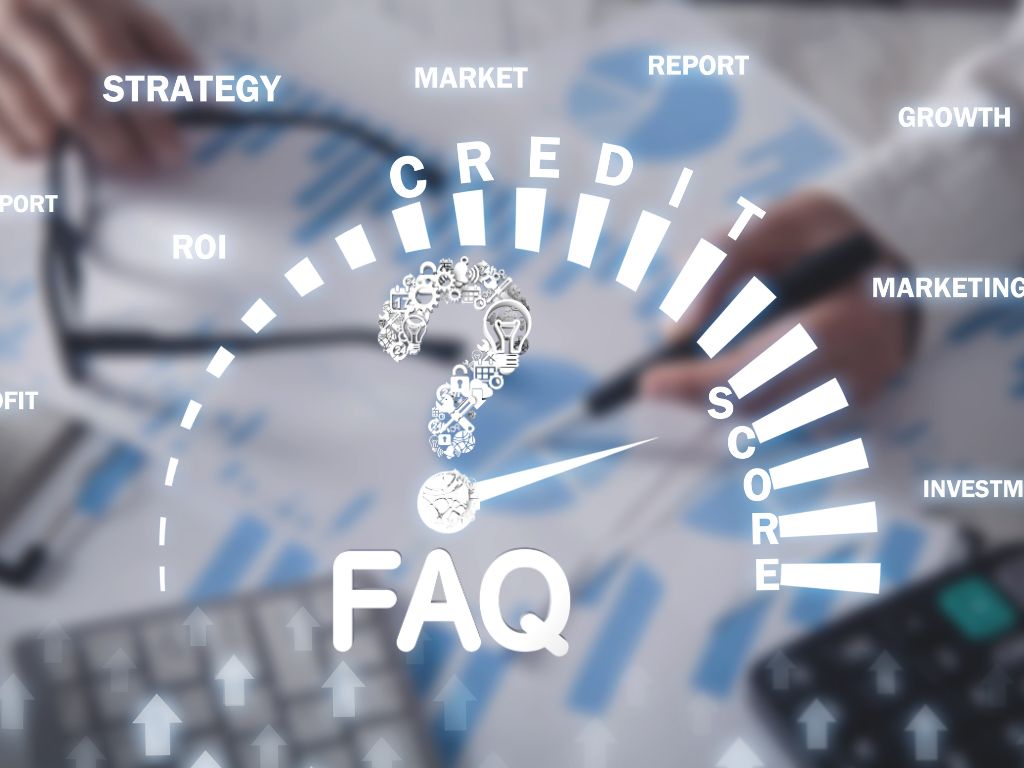
FAQs: Building Credit Questions Everyone Asks
How long does it take to build credit from scratch?
You can generate a credit score in as little as 3 to 6 months, depending on how quickly your accounts report to the credit bureaus. The key is getting at least one account that reports and managing it perfectly.
Can I build credit without a credit card?
Yes. Credit-builder loans, rent-reporting services, and becoming an authorized user on someone else’s card can all help you build credit without opening a traditional credit card.
What’s the fastest way to build credit?
Use a secured credit card, keep utilization below 10%, and make on-time payments every month. Add an authorized user account if possible. These combined actions can accelerate your score growth.
Do I need a job or income to build credit?
You don’t need a high income, but you do need some form of income to get approved for most credit products. Even part-time work or a consistent source of funds can be enough to start.
Does checking my own credit hurt my score?
No. Checking your own credit is a soft inquiry, it has no impact on your score. Only hard inquiries (like applying for a loan or card) affect your score temporarily.
Can I build credit if I’m a student or immigrant?
Absolutely. Students can use starter credit cards or secured cards. Immigrants can use programs like Nova Credit or apply with lenders that accept international credit histories or alternative data.
What credit score should I aim for?
A score above 700 is considered good. Above 750 is very good. Above 800 is excellent. But even getting into the high 600s can unlock approval for many credit products at reasonable rates.
Is it better to pay my credit card in full or leave a small balance?
Always pay in full. The idea that leaving a small balance boosts your score is a myth. Carrying a balance means you’ll pay interest and it does nothing to help your credit.
How often does your credit score update?
Most scores update every 30–45 days when creditors report new activity. If you’ve paid down a balance or opened a new account, you’ll usually see the change within a month.
0 Comments